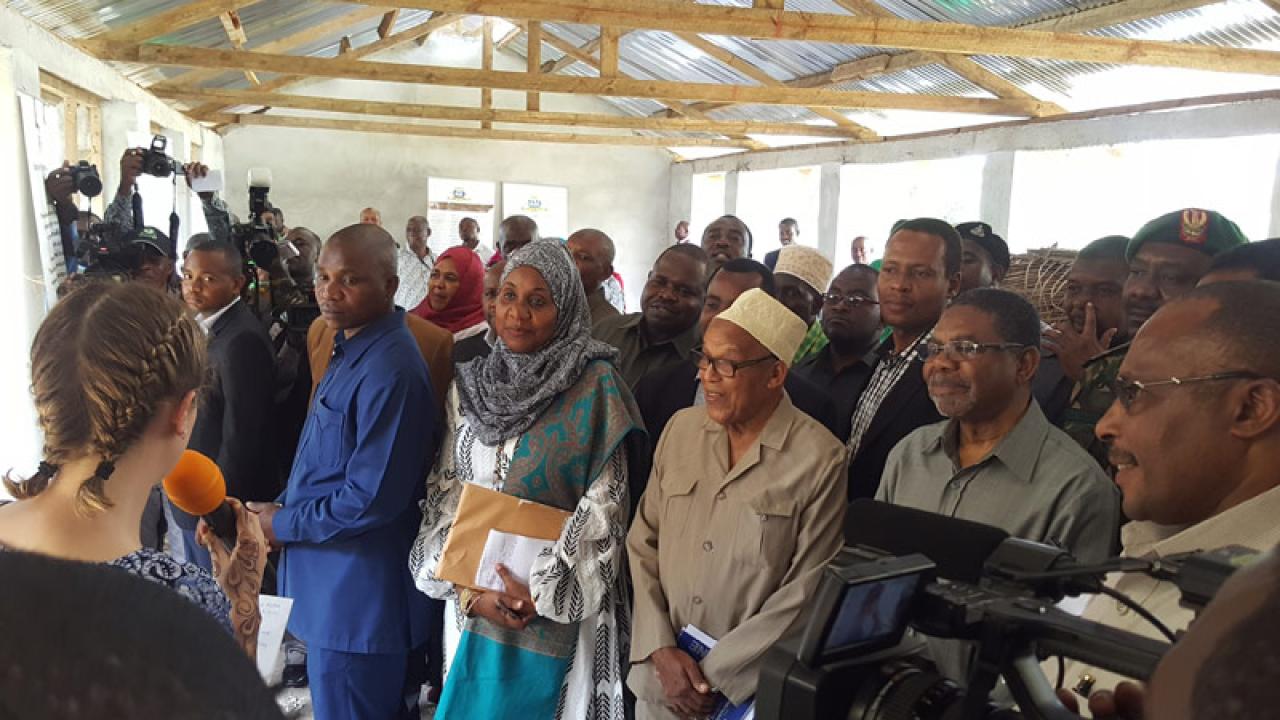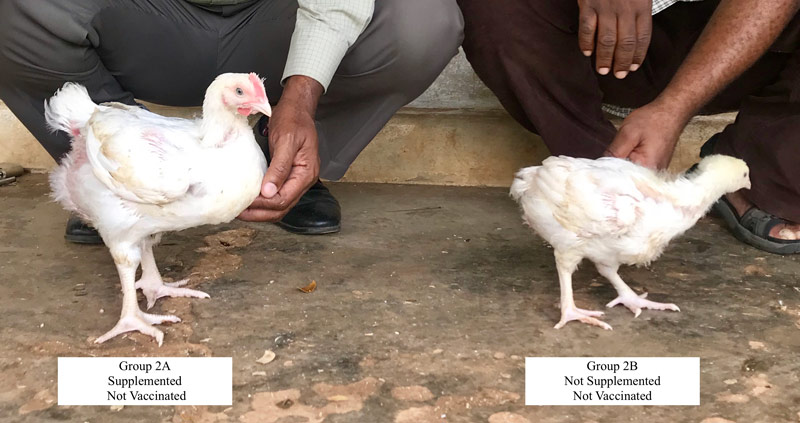
New Castle vaccine efficacy and growth rate of commercial broilers under different feeding systems in Zanzibar
By Leanna Kelly
Funded by the Research and Innovation Fellowship for Agriculture, Blum Center for Developing Economies, and the Henry L. Jastro research award
The Henry L. Jastro research award partially funded my research this past summer in Zanzibar conducting experiments to build the knowledge base for climate smart agricultural practices for poultry. While working on this project I initially laid out an experiment with indigenous poultry, which are often of higher market value because of a preferred flavor, however, after meeting with the group that would help to facilitate this research, the Zanzibar Livestock Research Institute (ZALIRI), a collaborative decision was made to initially implement this project with the broiler/ commercial breed of poultry due to time constraints. While I conducted the research on broiler chickens I, along with my team, built the connections needed with governmental agencies on Zanzibar in order to complete future work such as that on indigenous poultry.
I collaborated mainly with partners at ZALIRI, especially Mr. Faki Ame Kessi (M.S. Sokoine Agricultural University), on experimental design of how to implement a project that would test improved feeds. The experimental design would test how supplementing commercial broiler diets with locally available nutrient rich materials would affect the growth rate of the poultry and the feed conversion ratio of those birds (the amount of feed needed to gain 1 kg of body mass). The lower the conversion ratio the less input that is needed per bird, therefore utilizing fewer resources. In addition the resources that we used were locally sourced, both of these reasons increase the climate smartness of the poultry production system. In addition, after collaboration with UC Davis professors, Dr. Maurice Pietsky and Dr. David Bunn, it was decided to add an additional critical element to the project to look at NewCastle Disease vaccines. NewCastle disease is a deadly poultry disease effecting most of Sub-Saharan Africa that can kill 50-100% of farmer’s poultry flocks.
To summarize my methodology the chickens were split into 4 groups each of these groups received or did not receive a supplemented feed diet and received or did not receive a New Castle disease vaccination in a 2 x 2 Latin square design so that all possible combinations of treatments were accounted for. After the initial 2-week period each group was split into three replicates in order to create a statistically sound experimental design.
After all permits were obtained and the research methodology was finalized I was able to begin research activities. The research site was set and sanitized and several chicken bandas were built for the project. Once the ration was established necessary feedstuffs were obtained, including seaweed that is harvested and processed by a local women’s cooperative. The trial began on July 18th with 300 day old broilers.
My preliminary data analysis shows a statistically significant effect of supplement on final weight, and feed conversion ratio. There is also a statistically significant difference in vaccine efficacy among those birds that received both the vaccination and supplement versus just the vaccination alone.
These preliminary results show that supplementing the poultry diet along with vaccinating against New Castle disease may have a positive and climate smart effect on commercial broiler production in Zanzibar, however the data needs to be further analyzed and future studies need to be completed, especially those involving indigenous poultry.
In addition to presentations at the NaneNane festival (similar to a state fair) ZALIRI, the host organization for this ICRAF CSA project, celebrated it’s one year anniversary of it’s inception while I was there. To demonstrate the progress that they had made over the course of the year an open house was set up at the new location of ZALIRI where research projects as well as plans for the future were presented. This project entitled “New Castle vaccine efficacy and growth rate of commercial broilers under different feeding systems in Zanzibar” was presented to the president of Zanzibar and ministry officials while they visited the open house and was later summarized on the local news channel.
I as well as my colleague Faki Ame Kessi from ZALIRI plan to present the research that was completed for this project at the PanAfrican Poultry Conference in Togo this May (2019) after data analysis has been completed and communication materials have been made.

